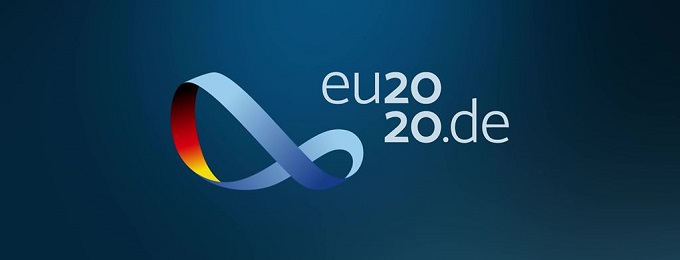Finalisation of the Erasmus+ regulation, a push for digital education, a new impetus for the European Education Area, and cooperation in VET are on the agenda.
Germany will take over the Presidency of the EU Council from Croatia on 1 July. The handover is also the start into a new Trio period, including the Presidencies of Germany, Portugal and Slovenia (see their overall programme for the coming 18 months).
Germany’s major priority in the field of education is the advancement, and ideally the finalisation, of the Erasmus+ regulation establishing the Erasmus+ programme for 2021-2027. In parallel, they also aim to finalise the European Solidarity Corps regulation. Both files depend on the agreement on the EU’s Multiannual Financial Framework (MFF) for 2021-2027 (see SwissCore article). Yet other issues, such as the programme governance for Erasmus+, still have to be resolved as well in trilogue negotiations between the Council, the European Parliament and the European Commission (EC).
Digital education and learning is another German Presidency priority. Council Conclusions on the topic will be adopted in the November council meeting. The Council Conclusions will, first of all, analyse the experiences during the COVID-19 crisis and, second, provide political guidance for initiatives in this policy field, e.g. initiatives that the EC will propose under the updated Digital Education Action Plan in September.
Vocational education and training (VET) will also be high on the agenda of the second half of 2020. Germany envisages to have Council Conclusions adopted on VET in November and to reinforce the Copenhagen Process for European cooperation in VET. For the latter, Germany is preparing an “Osnabrück Declaration”. As a follow-up to the Riga Conclusions that will expire by 2020, a new set of joint objectives and deliverables with a horizon of 2030 should be adopted. Germany’s aim is to foster a deepening of the European VET Area that is well embedded in and in line with the European Education Area.
The whole Trio Presidency will put a focus on universities of the future. As a first step, Germany prepares Council Conclusions on European universities for adoption in the November EYCS meeting. With the Council Conclusions, Education ministers will provide political guidance for the European Universities Initiative to be implemented under the new Erasmus+ programme as well as for the Communication on universities of the future that the EC is planning to present in 2021.
The EC has not yet presented its vision for the European Education Area and a new overarching strategic framework for European cooperation on education and training (post-ET2020). As this is expected for September, Germany will start debates and policy discussions on the topic in order to prepare the ground for a consolidated position under the next Presidency.
The German Presidency will also work towards formalising the regular exchange between EU Member States on the impact of COVID-19 on education and training and facilitate continued sharing of information.
Under the German Presidency, an informal meeting of the Education, Youth, Culture and Sport Council (EYCS) will be held on 16-17 September with a focus on Vocational Education and Training (VET). The formal EYCS meeting will take place on 30 November.

